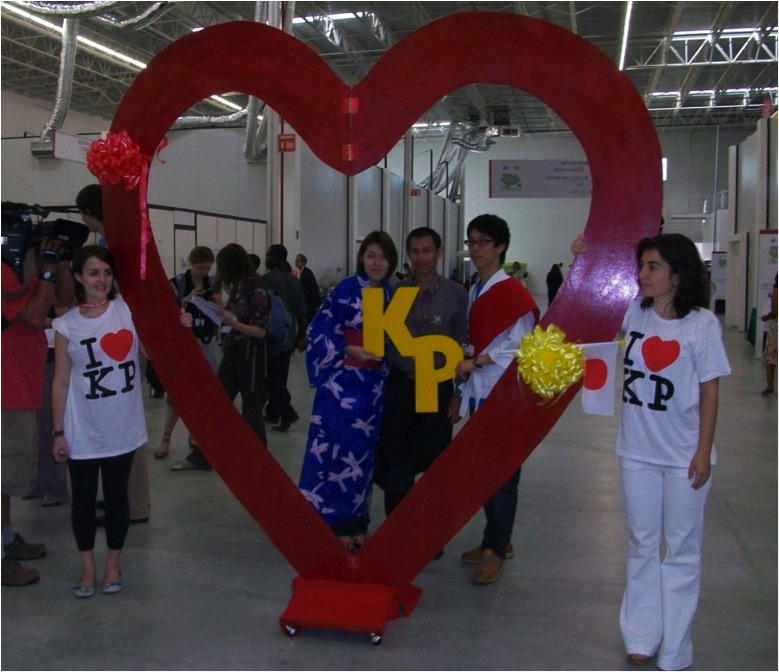Guest post by Jennifer Dagg, member of the Canadian Youth Delegation at the UN climate negotiations
Yesterday marked "Youth and Future Generations Day" at the United Nations climate change negotiations in Cancun, Mexico. There are currently more young people living on the planet than ever in our history, and those not yet born will have to bear the consequences of decisions we make today. Given that their future is at stake, ignoring the messages from youth in these important climate negotiations would be entirely irresponsible.
I am privileged to be a member of the Canadian Youth Delegation, a group of 29 young people from all across Canada who are committed to real climate solutions, and to making sure that youth voices are heard at the UN talks. The Canadian youth are often recognized by other countries for our strong presence and high level of engagement in the process, and this year's delegation is no different.
We participate in the negotiations in a variety of ways:
- We can speak in the opening plenary sessions of the various groups in the conference in the form of interventions. Yesterday, all the youth wore T-shirts with a quote from a speech made last year in Copenhagen by 17-year-old Christina Ora from the Solomon Islands: "You have been negotiating all my life. You cannot tell us that you need more time. Please commit to these decisions now, because you hold our future in your hands, and survival is not negotiable."
- We gather together at the Conference of Youth, to meet other young people from all around the world, to learn about issues, and teach each other how to effectively participate in the UN process. Bill McKibben, keynote speaker and founder of the global climate movement 350.org, said, "This Conference of the Youth is more important than the Conference of Parties. It's here, among you, that the future of our planet will be decided." (Listen to some Canadian youth delegates interview McKibben here).
- Since we are the social media generation, we share updates on the negotiations with our networks through blogs, Facebook updates and tweets.
- We try to draw attention to important issues while having a little fun through actions. This week, youth from Japan demonstrated their love for the Kyoto Protocol, in the face of the Japanese delegation's announcement that they would not participate in an extension of the agreement.
- We can host events, such as the panel this week that highlighted youth-driven initiatives in the United States, Canada and Southeast Asia to solve climate change.
While young people are working hard to play an effective role in the negotiations today, the most important part of this experience is preparing for the future. One of the biggest things I've learned at this conference is that we must not only be prepared to adapt to climate change, but learn to live well in our changing world. We know the methods used in the past will not always be useful in the future. We need to know how to integrate climate change into every decision we make, and we need to connect and learn from our peers around the world who are creating solutions. The importance of learning is highlighted this week because the UN is assessing the effectiveness of the parts of the Convention that deal with education and communicating climate change. Many youth organizations see education as one of the best tools we have to build support for the kind of climate action we know is needed, and are hoping for a stronger program coming out of this week, including giving the youth more power within the negotiations
This is my first time participating in UN negotiations, and it brings up a huge flood of emotions. It's literally painful to embrace the severity of climate change impacts, but it can't be avoided in Cancun. Every day I meet people who are already dealing with enormous impacts, that is to come to terms with what we have done to our planet. The UN process can be confusing and overwhelming, especially because I don't have advanced degree in "UN speak." After a year of negative news about the climate action, including the death of climate bills in both the U.S. and Canada, there were very low expectations for the outcomes of these negotiations. Yet I am optimistic, because I can see first-hand just how many other people are passionate about creating a solution that works, and how many of those people are youth. We are building momentum for a good deal, and we are building our own capacity to deal with our changing world.







